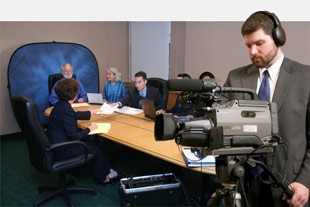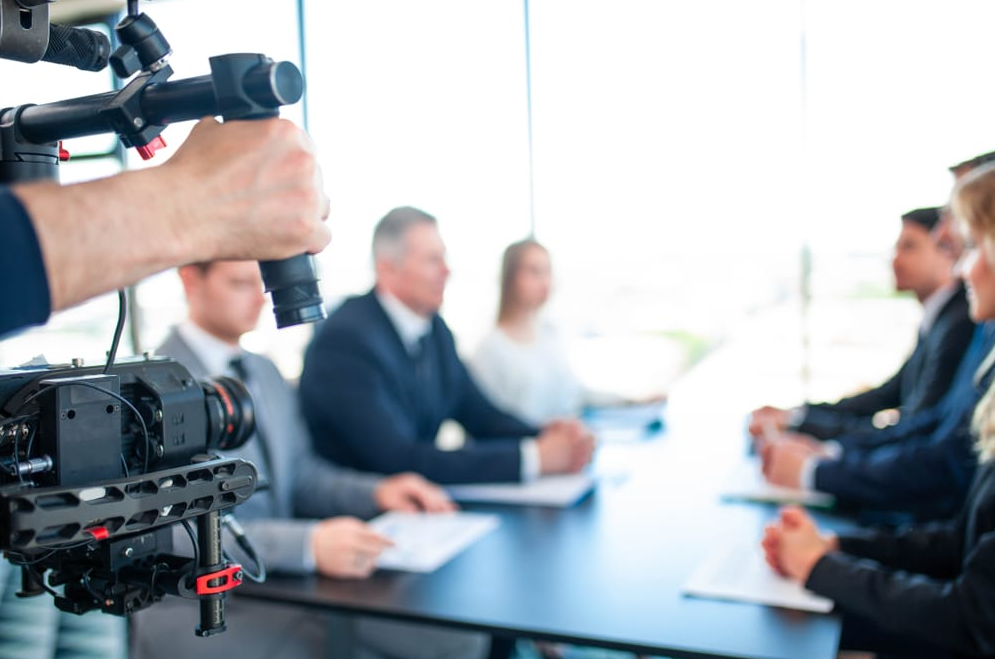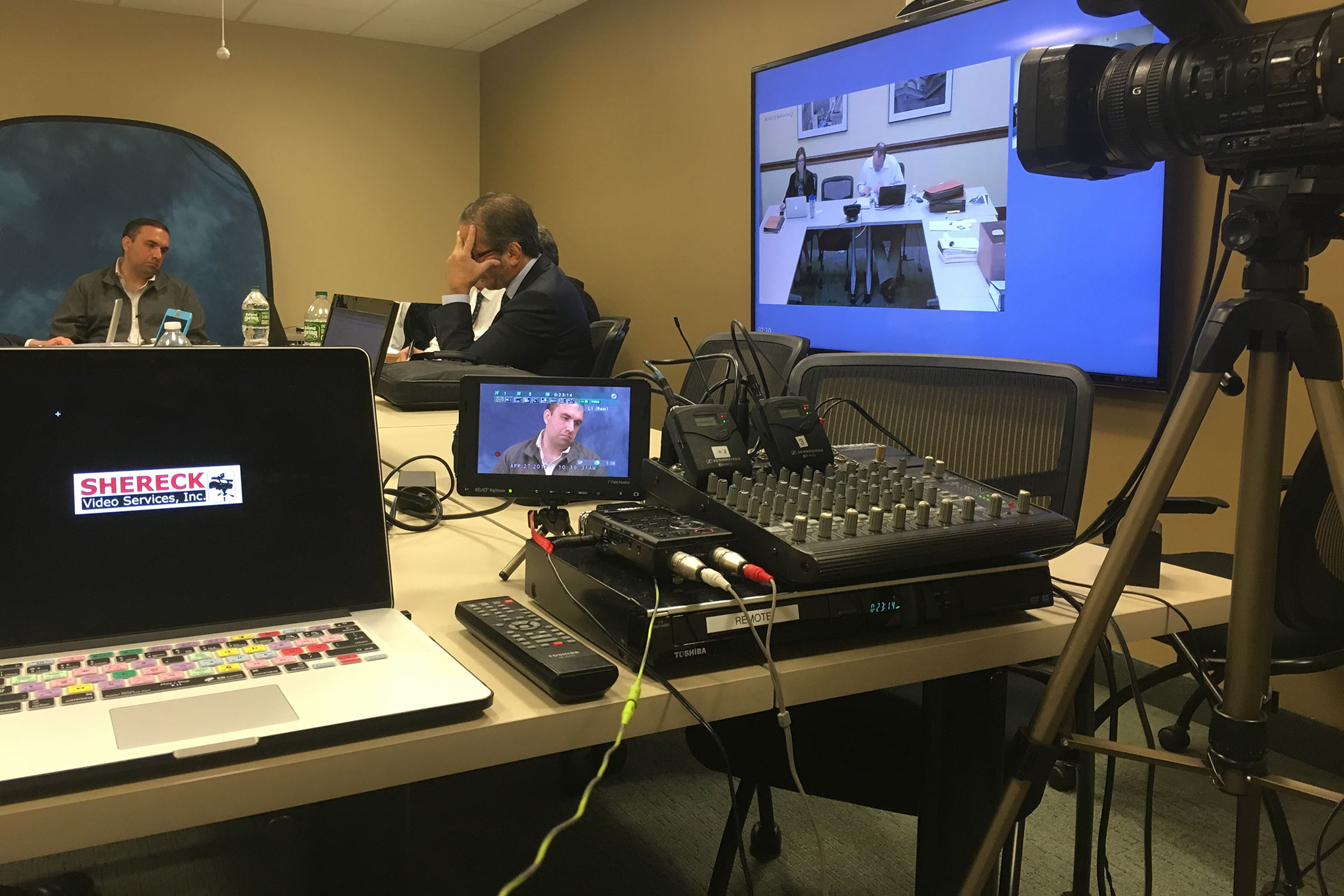Professional Legal Videography Services for Litigation Needs.
Professional Legal Videography Services for Litigation Needs.
Blog Article
The Role of Legal Videography in Depositions and Trials
Legal videography has become an important device in both depositions and trials, giving a complex strategy to documenting witness testaments. By recording not just the talked word but also the subtleties of non-verbal communication, this medium improves the credibility of statements and preserves important proof for future process. As legal specialists progressively acknowledge its value, it motivates a deeper examination of exactly how these visual documents can influence juror perceptions and test results. What ramifications might these advancements hold for the future of lawful technique?
Importance of Legal Videography
Legal videography plays an essential duty in the paperwork and discussion of depositions and trials. This specific area incorporates technological skills with legal understanding to develop a trustworthy record of procedures that can dramatically influence instance outcomes. The aesthetic facet of lawful videography boosts the understanding of witness statement, enabling jurors and judges to observe not just the spoken words however likewise the temperament, emotions, and body language of the witnesses.

The importance of legal videography prolongs past the court room; it additionally plays a vital role in protecting proof for future referral, whether for appeals or additional lawful activity. Therefore, its assimilation right into the legal process is vital for guaranteeing a reasonable and accurate depiction of the truths, inevitably adding to the search of justice.

Process of Legal Videography
While capturing the nuances of depositions and trials, the process of lawful videography includes numerous essential actions that guarantee top quality, accurate recordings. An expert lawful videographer prepares by evaluating the situation products and understanding the particular requirements of the deposition or trial. This preparation includes familiarizing themselves with the participants and the context, which aids in catching essential information.
On the day of the recording, the videographer establishes the essential tools, which generally includes high-def cams, microphones, and proper lights. Making certain optimal angles and sound high quality is essential, as it straight impacts the efficiency of the recording. The videographer connects with attorneys and participants to develop procedures, making certain that every person comprehends the recording procedure.
Throughout the deposition or trial, the videographer carefully tapes the process, paying attention to both spoken and non-verbal cues. legal videography. This includes catching the attitude and responses of witnesses and lawyers. After the session ends, the videographer might modify the video footage for clearness and conformity with legal standards, creating an end product that accurately reflects the proceedings for future reference and use in legal contexts
Benefits in Depositions
The consolidation of videography in depositions offers various benefits that boost the general procedure of gathering evidence. One main advantage is the capability to record witness testaments with aesthetic and auditory fidelity, supplying an extra precise depiction of the witness's behavior, tone, and body movement. This multidimensional technique enables lawyers and courts to analyze reliability better than traditional written transcripts alone.
Additionally, videographed depositions act as an effective tool for preserving testimony. Should a witness come to be not available for trial, their taped deposition can be played in court, ensuring that their proof remains accessible and appropriate. This element significantly minimizes the risk of losing essential info that could affect instance end results.
In addition, making use of lawful videography advertises better prep work for attorneys. Reviewing video clip footage permits lawful groups Read Full Report to evaluate and refine their techniques, identifying staminas and weaknesses in their cases. This primary advantage can result in more compelling presentations in court.
Last but not least, videography boosts the general expertise of the deposition procedure, instilling confidence in customers pertaining to the thoroughness of their lawful depiction. By leveraging modern technology, lawyers can significantly boost the performance of depositions.
Effect On Trials
In lots of trials, the integration of videography can significantly affect the presentation of evidence and the jury's perception. Legal videography records witness testimonies and important evidence in a dynamic format, allowing jurors to involve with the product on several levels. This aesthetic element enhances the storytelling aspect of a test, supplying context and emotional resonance that typical text-based evidence might do not have.
Moreover, video recordings can work as powerful tools for impeachment throughout cross-examination. When discrepancies emerge in between a witness's prior declarations and their courtroom statement, video clip evidence offers an unbiased referral that can sway jurors' point of views. This immediacy and clarity can strengthen the integrity of a party's story while concurrently threatening opposing disagreements.
Additionally, the use of videography can aid streamline intricate details, making it more available to jurors who may struggle to realize detailed information presented entirely through spoken testament. By integrating visuals with acoustic details, lawful videography can improve retention and understanding, eventually influencing the jury's decision-making procedure. As a result, the influence of videography in trials prolongs past simple visual appeals; it plays a vital role in shaping the lawful landscape and outcomes.
Future Trends in Legal Videography
As we look towards the future of lawful videography, several arising patterns dig this assure to improve its duty within the court room. One considerable trend is the combination of expert system (AI) in video clip analysis and modifying - legal videography. AI can improve the process of recognizing crucial moments in videotaped depositions, enabling attorneys to quickly access appropriate material, therefore boosting effectiveness in situation preparation
In addition, the surge of digital reality (VIRTUAL REALITY) and augmented reality (AR) technologies is anticipated to transform how jurors experience proof. By immersing jurors in a simulated environment, these innovations can provide an extra extensive understanding of complicated scenarios, bring about more enlightened deliberations.

Furthermore, the raising need for remote depositions, sped up by the COVID-19 pandemic, will likely proceed. Lawful videographers will require to adapt to new software program and systems to guarantee top quality recordings in virtual settings.
Last but not least, the growing emphasis on information security will require stricter procedures for keeping and sharing video proof. As the lawful landscape evolves, legal videographers have to remain abreast of these fads to keep their significance and efficiency in the judicial procedure.

Conclusion
In summary, straight from the source legal videography serves a vital function in the judicial procedure, boosting the honesty of depositions and tests. As technology continues to progress, lawful videography is positioned to more transform its role within the lawful landscape.
Report this page